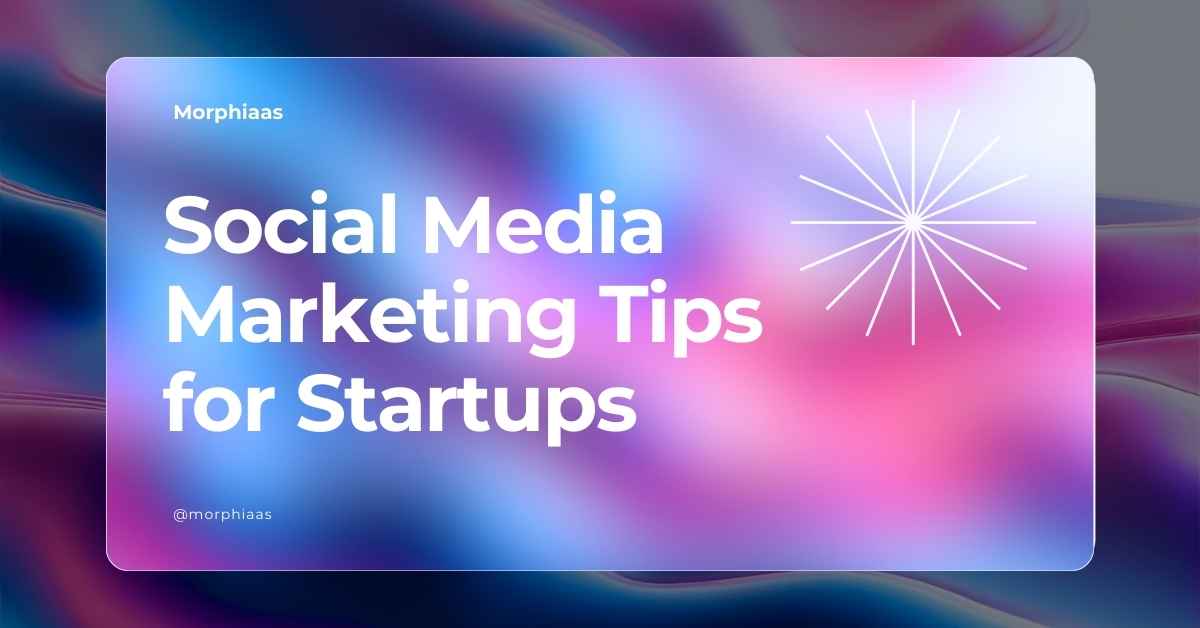Social Media Marketing Tips for Startups

In today’s digital landscape, social media marketing has become an essential tool for startups aiming to establish their brand and connect with their target audience. With billions of users across various platforms, startups have the unique opportunity to leverage social media to build brand awareness, engage customers, and drive sales. This blog will provide valuable social media marketing tips for startups to help them navigate this dynamic environment effectively.
Overview of the Topic
Social media marketing encompasses a range of strategies and tactics that businesses use to promote their products or services on social media platforms. For startups, this can be particularly crucial as they often operate with limited budgets and resources. Understanding how to utilize social media effectively can lead to significant growth and visibility.
Importance of Social Media Marketing for Startups
- Cost-Effective Marketing: Compared to traditional advertising, social media offers a more affordable way for startups to reach potential customers.
- Direct Engagement: Social media allows startups to interact with their audience in real-time, fostering relationships and building trust.
- Brand Visibility: A strong social media presence can enhance brand recognition and attract new customers.
Key Concepts or Definitions
Social Media Platforms
Different platforms cater to various demographics and types of content. For example:
- Facebook: Ideal for community building and advertising.
- Instagram: Focused on visual content, perfect for brands with strong imagery.
- LinkedIn: Best for B2B interactions and professional networking.
Content Strategy
A content strategy outlines what type of content will be shared, how often, and on which platforms. This includes:
- Visual Content: Images and videos that capture attention.
- Written Content: Blog posts, articles, and updates that provide value.
Detailed Analysis
Identifying Your Target Audience
Startups should define their target audience by considering demographics such as age, location, interests, and online behavior. Tools like Google Analytics can provide insights into user behavior.
Analyzing Competitors
Studying competitors can reveal effective strategies and gaps in the market. Look at:
- Their engagement rates.
- The type of content they post.
- Their follower growth.
Data-Driven Decisions
Utilizing analytics tools (e.g., Hootsuite Insights) enables startups to track performance metrics such as engagement rates, reach, and conversions. This data helps refine strategies over time.
Practical Applications or Tips
- Choose the Right Platforms: Focus on platforms where your target audience is most active.
- Develop a Content Calendar: Plan your posts in advance to maintain consistency.
- Engage with Your Audience: Respond to comments and messages promptly to build community.
- Use Hashtags Strategically: Incorporate relevant hashtags to increase discoverability.
- Leverage Influencer Marketing: Collaborate with influencers in your niche to expand your reach.
- Monitor Trends: Stay updated on industry trends and adapt your strategy accordingly.
Common Misconceptions
- Myth 1: “Social Media is Only for Big Brands”
Startups can leverage these platforms effectively by focusing on niche markets and engaging authentically with their audience. - Myth 2: “More Followers Equals More Success”
Engagement rates are more important than follower count. A smaller, engaged audience can lead to better results than a larger inactive one.
Frequently Asked Questions (FAQs)
- What are the best social media platforms for startups?
Facebook, Instagram, and LinkedIn are commonly effective choices, depending on your target audience. - How often should I post on social media?
Aim for at least 3-5 posts per week per platform while monitoring engagement levels to adjust frequency. - Can I use automation tools for social media management?
Yes, tools like Buffer or Hootsuite can help schedule posts and track performance metrics efficiently. - How do I measure the success of my social media campaigns?
Use analytics tools to track engagement rates, follower growth, website traffic from social channels, and conversions.
Conclusion
Social media marketing presents an invaluable opportunity for startups to connect with their audience and grow their brand. By implementing the tips outlined in this blog—such as defining your target audience, creating valuable content, and engaging consistently—startups can effectively navigate the complexities of social media marketing. As the digital landscape continues to evolve, staying adaptable and informed will be key to long-term success.




